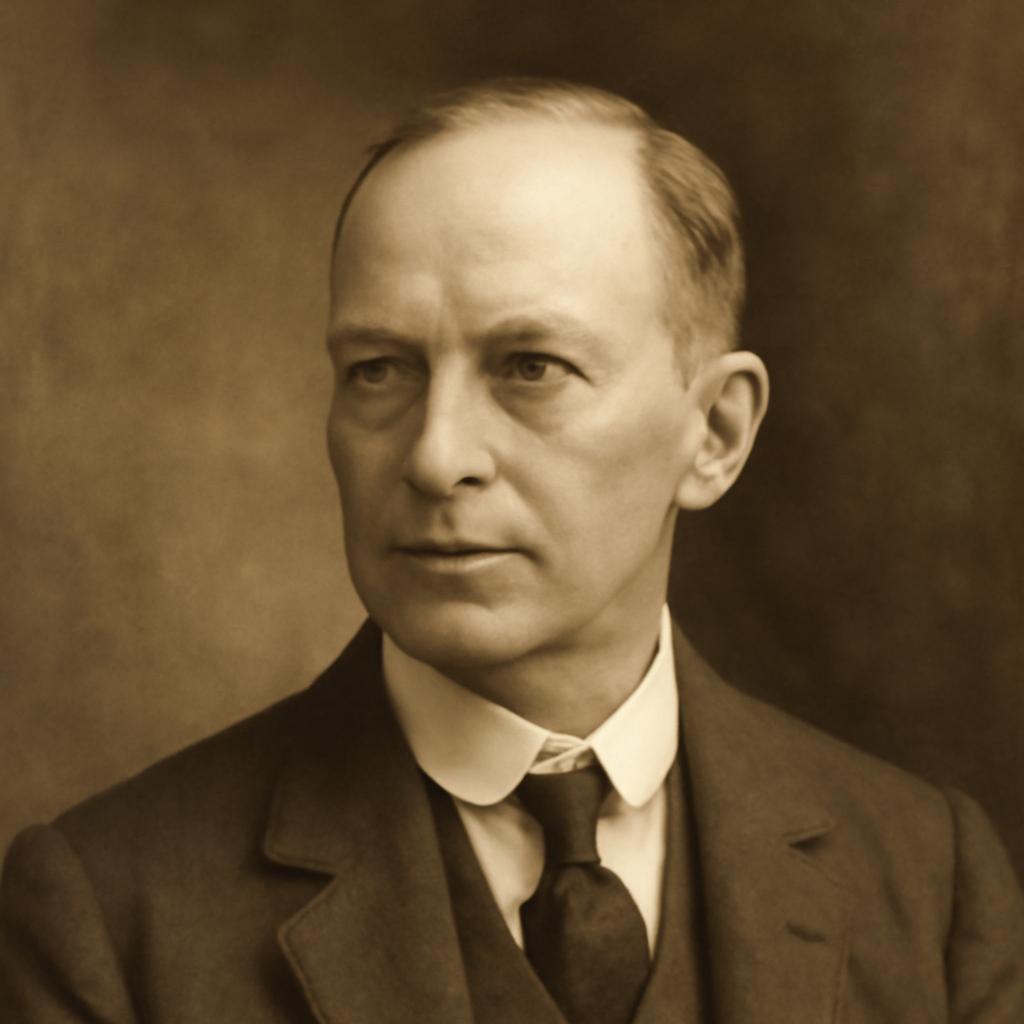1 Poems by Strickland Gillilan
1869 - 1954
Strickland Gillilan Biography
Strickland Gillilan, an American poet and humorist, left an indelible mark on early 20th-century American literature with his witty verses and heartfelt compositions. Born on September 21, 1869, in Jackson County, Ohio, Gillilan's life and work spanned a period of significant social and cultural change in the United States.
Raised in a modest household, Gillilan's early years were shaped by the rural Midwest landscape and the values of hard work and perseverance instilled by his parents. His father, a farmer and local politician, encouraged young Strickland's literary interests, fostering a love for language and storytelling that would define his future career.
Gillilan's formal education was limited, but his insatiable appetite for knowledge led him to become an avid reader and self-taught scholar. He began his professional life as a journalist, working for various newspapers in Ohio and Indiana. This experience honed his writing skills and provided him with a keen insight into human nature, which would later inform his poetry.
It was during his time as a journalist that Gillilan began experimenting with verse, often incorporating humorous observations about daily life into his newspaper columns. His ability to find humor in the mundane and express it through clever wordplay quickly gained him a following among readers.
Gillilan's breakthrough as a poet came with the publication of his most famous work, "The Reading Mother," in 1915. This touching tribute to maternal love and the power of reading aloud to children resonated deeply with audiences and has since become a classic of American poetry. The poem's enduring popularity is a testament to Gillilan's ability to capture universal emotions in simple, yet profound language.
While "The Reading Mother" remains his best-known work, Gillilan's poetic output was vast and varied. He published several collections of poetry throughout his career, including "Including Finnigin" (1908), "Including You and Me" (1927), and "Sunshine and Awkwardness" (1916). These volumes showcased his versatility as a poet, featuring both humorous verses and more serious, contemplative pieces.
Gillilan's style was characterized by its accessibility and relatability. He eschewed complex metaphors and obscure allusions in favor of direct, conversational language that spoke to the experiences of ordinary Americans. This approach earned him the moniker "the people's poet" and endeared him to a wide readership across the country.
Despite his popularity, Gillilan never achieved the same level of critical acclaim as some of his contemporaries in the literary establishment. However, his influence on American popular culture was significant. Many of his poems and witticisms became widely quoted, and he was a sought-after speaker on the lecture circuit, where he delighted audiences with his humorous recitations and observations on life.
Gillilan's personal life was marked by both joy and tragedy. He married Emma Maurice Cronin in 1897, and the couple had three children. However, Emma's death in 1926 deeply affected the poet, and themes of loss and remembrance began to appear more frequently in his later works.
Throughout his career, Gillilan maintained a connection to his journalistic roots, contributing to various publications and serving as a columnist for the Baltimore Sun. This ongoing engagement with current events and social issues informed his poetry, allowing him to comment on the changing face of America in the early 20th century.
One of Gillilan's most notable contributions to American literature was his role in popularizing the limerick form. While not the inventor of this poetic structure, he was instrumental in bringing it to a wider audience through his prolific output and public performances. His limericks often featured clever wordplay and unexpected twists, demonstrating his mastery of the form.
Gillilan's work also reflected the cultural and technological shifts of his time. Poems about automobiles, telephones, and other modern conveniences showcased his ability to find humor and insight in the rapidly changing world around him. This quality made his poetry not only entertaining but also valuable as a chronicle of early 20th-century American life.
In his later years, Gillilan continued to write and perform, though at a reduced pace. He remained a beloved figure in American letters, respected for his contributions to both poetry and journalism. His legacy is one of accessibility and humor in poetry, reminding readers that profound truths can often be found in the simplest of verses.
Strickland Gillilan passed away on February 1, 1954, in Baltimore, Maryland, leaving behind a body of work that continues to be read and appreciated. While he may not have achieved the same level of posthumous recognition as some of his contemporaries, his influence on American popular poetry and his ability to capture the spirit of his times ensure his place in the annals of American literature.
Today, scholars of early 20th-century American poetry find in Gillilan's work a valuable window into the popular tastes and cultural preoccupations of his era. His poetry serves as a bridge between the more formal styles of the 19th century and the increasingly conversational tone that would come to dominate much of 20th-century American verse. For those studying the development of American humor in literature, Gillilan's works provide a rich vein of material, demonstrating the evolution of wit and wordplay in the national consciousness.
Ultimately, Strickland Gillilan's legacy is that of a poet who spoke to and for the common people, finding beauty and humor in the everyday experiences that shape human life. His work continues to resonate with readers who appreciate the power of simple, heartfelt verse to illuminate the human condition.
This text was generated by AI and is for reference only. Learn more
Username Information
No username is open
Unique usernames are free to use, but donations are always appreciated.
Quick Links
© 2024-2025 R.I.Chalmers (V2Melody).

All music on this site by R.I.Chalmers (V2Melody) is licensed under a Creative Commons Attribution-NonCommercial 4.0 International License.
Attribution Requirement:
When using this music, you must give appropriate credit by including the following statement (or equivalent) wherever the music is used or credited:
"Music by R.I.Chalmers (V2Melody) – https://v2melody.com"
Support My Work:
If you enjoy this music and would like to support future creations, donations are always welcome but never required.
Donate


